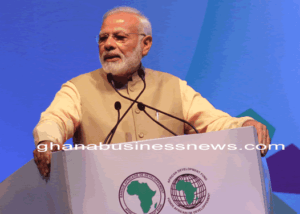India declines to join 16-nation Asia-Pacific trade pact

Indian Prime Minister Narendra Modi has decided against the Regional Comprehensive Economic Partnership, (RECEP) one of the world’s largest free trade pacts that involve 16 nations in the Asia-Pacific region.
The Indian leader declined to sign the agreement at a summit in Thailand on Monday, concerned that the proposed deal would give China unfair trade advantages.
“The present form of the RCEP Agreement does not fully reflect [its] basic spirit and the agreed guiding principles,” Modi said. “It also does not address satisfactorily India’s outstanding issues and concerns. In such a situation, it is not possible for India to join RCEP Agreement.”
India commerce minister Piyush Goyal praised Modi’s decision, saying it will lead to more India-made products and that the RCEP would’ve stood “against our economic interests and national priorities.”
Some analysts say the decision could be one that harms New Delhi’s economy. Rajat Kathuria, director of the Indian Council for Research on International Relations, said signing the deal would have brought much needed stability.
“RCEP would have provided a much-needed external push for our industry to gear up, and to become more competitive,” Kathuria said. “Modi is” just reinforcing the often-held perception that India is a difficult country to do business with.”
India was looking to shore up some of its trade deficits at the Thailand summit. Indian manufacturers and dairy farmers were among the most vocal opponents to the RCEP, fearing it would lead to a wave of cheap, Chinese-made imports.
RCEP negotiations will continue among China, Japan, South Korea, Australia, New Zealand and several smaller nations in the region, which aim to finalize the agreement next year. They expressed hope India might rethink its decision and sign on.
Source: GNA
